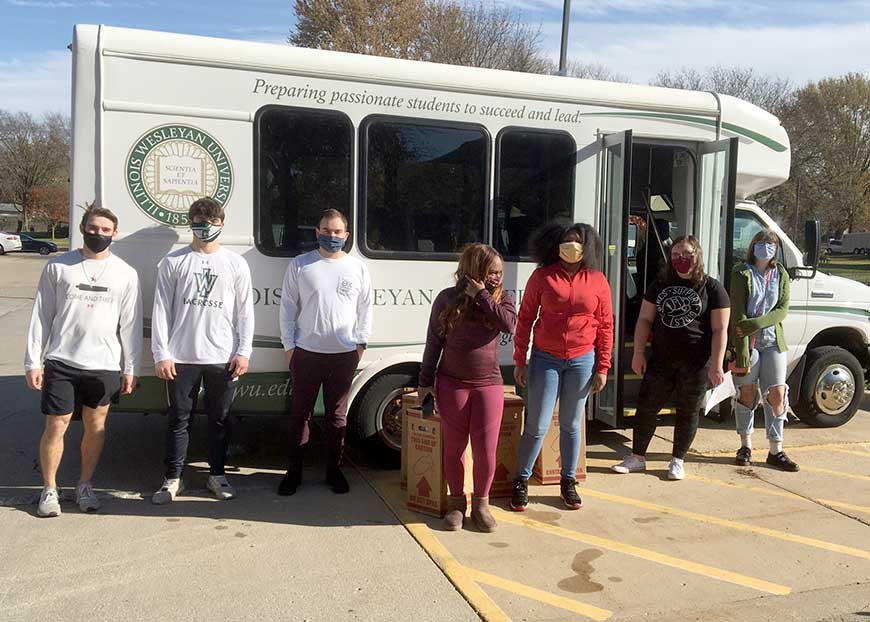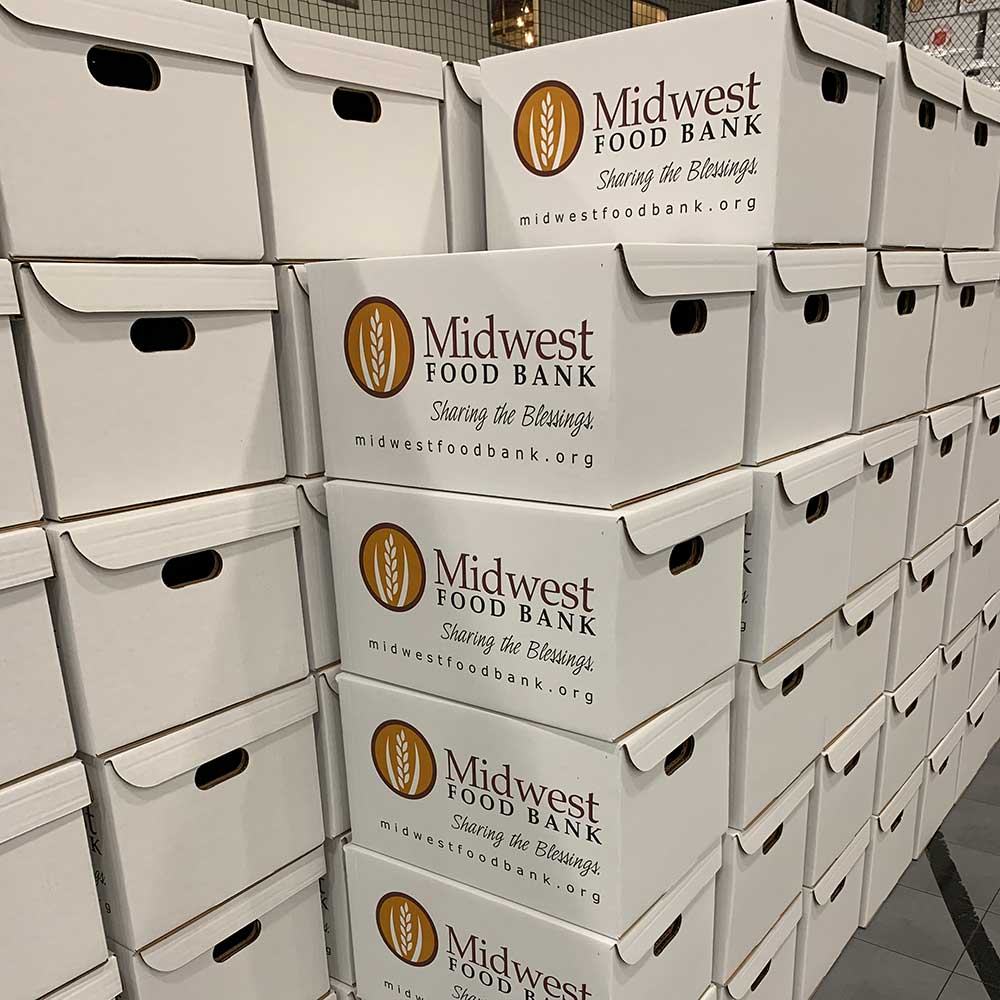Students Put Principles into Practice at Midwest Food Bank

Nov. 13, 2020
BLOOMINGTON, Ill. — This Thanksgiving, holiday meals will be provided to roughly 2,500 McLean County families in need thanks in part to the hard work and generous spirit of Illinois Wesleyan University’s Profession of Social Work class, which partnered this semester with Midwest Food Bank to help support the annual “Big Give” food drive, along with other community initiatives.
Each year, Midwest Food Bank, a faith-based organization dedicated to addressing poverty and food insecurity, packages thousands of Thanksgiving meals and distributes them to families throughout McLean County. However, the COVID-19 pandemic negatively impacted the food bank’s ability to recruit volunteers, many of whom are typically of retirement age. Additional hands were necessary to collect, sort, package and distribute food for the “Big Give,” in preparation for “Operation Give Thanks.”
Meanwhile, Adjunct Instructor in Sociology Emily Barr also faced challenges when rethinking her Profession of Social Work class amid the pandemic. Barr knew that inviting in-person guest speakers and assigning the usual 12 hours of individual volunteer work wouldn’t be viable this year, but also knew that an online class wouldn’t allow for the kind of experiential learning necessary to truly understand the field of social work.
“I know I’m old school, there’s no substitute for just going out and doing it,” said Barr. “Face-to-face, being in the community, outside the classroom, and getting a feel for what this is all about and how much each individual can do, but especially how much you can do as a class or more people.”
When Barr decided to make this year’s class center around the application of social work in the community, she wanted to address the rise in food insecurity as a result of the pandemic, which led her to contact Midwest Food Bank about the possibility of a partnership.

“This was a unique proposal as we have not had a class interested in engaging with us throughout an entire semester,” said Tara Ingham, executive director of Midwest Food Bank. “We quickly learned that this arrangement was a win-win solution. Her students were able to see firsthand what running a nonprofit is like, while we gained the students' help with many different endeavors that benefit the communities we serve.”
Each Tuesday and Thursday throughout the fall semester, instead of walking to class or logging onto a virtual Zoom call, students donned their masks and drove to the Midwest Food Bank warehouse in Normal, Illinois, which served as both their socially-distanced classroom and their field site. After a discussion of foundational principles in social work, the students put those principles into practice through projects that encapsulated everything it takes to maintain a successful non-profit organization. Running a food drive at Illinois Wesleyan to support the “Big Give,” packaging relief boxes, writing newsletter articles and researching food insecurity in the community were just a few of the real-world skills that IWU students learned through this partnership.
“My experience with Midwest Food Bank allowed me to take the first step into social work and to see how a structured system works within the field,” said Landria Tran ’22, an interdisciplinary education studies major looking to apply social work principles within the field of education.
“From an educational standpoint, I learned that when working with social systems, we must understand why we carry out a mission or message. To form a developed understanding, we must learn that it starts with the community.”
The importance of community to Illinois Wesleyan students came as no surprise to Barr, who understood from previous years that the community service aspect of her course resonated with students the most. “Hands down, every time students have evaluated the experience, what they’ve told me is that this is the most valuable learning experience that they come away with, being able to go out and actually do something in the community with an organization.”
The opportunity to watch her students grow in their knowledge and passion for social work while simultaneously making a difference through the “Big Give” and other Midwest Food Bank projects gives Barr continued hope for the future of her field and humanity.
“Being in this field, I’m always inspired by the students, every semester,” she reflected. “I marvel at how committed to social causes these students are. They are extremely positive about helping somebody else and doing it out in the community. They enjoy doing that, and I hope they continue doing that.”
By Rachel McCarthy ’21